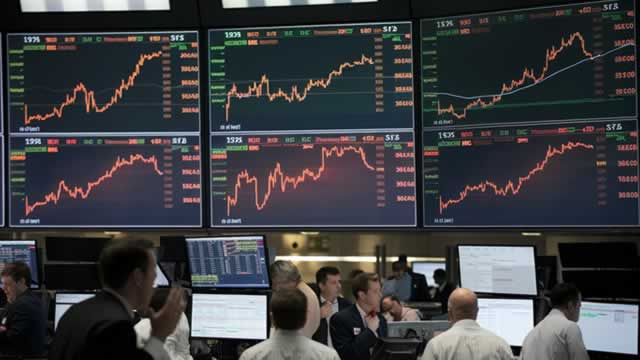Weaker-than-Expected Consumer Inflation Data: A Volatile Day for Financial Markets
The financial markets experienced another day of volatility as weaker-than-expected consumer inflation data failed to quell investor concerns.
What Happened?
The Consumer Price Index (CPI), which measures the change in prices for a basket of goods and services, came in lower than anticipated for the month. Specifically, the CPI increased by 0.1% in March, missing the consensus estimate of a 0.2% increase. This marked a deceleration from the 0.4% rise seen in February.
Impact on Investors
The disappointing inflation data added to the growing list of concerns for investors, who have been grappling with rising interest rates, geopolitical tensions, and uncertainty surrounding global economic growth. The S&P 500 and the Dow Jones Industrial Average both closed the day with significant losses.
Impact on Consumers
While the weaker inflation data may be a relief for consumers in the short term, as it could lead to lower interest rates and potentially lower prices for some goods and services, it also raises questions about the broader economic outlook. If inflation continues to remain low, it could signal weaker demand and slower economic growth.
Global Implications
The weak inflation data is not just an issue for the United States. Similar trends have been observed in other major economies, such as Europe and China. This could have significant implications for global economic growth and monetary policy.
- Europe: The European Central Bank has already signaled that it may delay raising interest rates, as inflation in the Eurozone remains below its target.
- China: China’s consumer price index also saw a smaller-than-expected increase in March, raising concerns about the Chinese economy’s ability to sustain its growth rate.
What’s Next?
The weaker-than-expected inflation data is just one of many factors that investors will be watching closely in the coming days and weeks. Other key data points, such as retail sales and industrial production, will provide additional insight into the health of the economy. In the meantime, investors are likely to remain cautious, as geopolitical tensions and uncertainty surrounding global economic growth continue to weigh on the markets.
In conclusion, the weaker-than-expected consumer inflation data served as a reminder of the ongoing challenges facing the financial markets. While the data may be a relief for consumers in the short term, it also raises concerns about the broader economic outlook. As investors continue to grapple with a complex and uncertain environment, it’s important to stay informed and maintain a long-term perspective.





